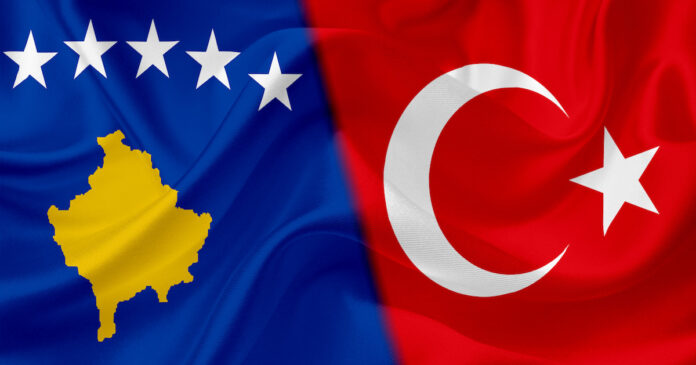Authors: Afrim Hoti, Bardhok Bashota, Bekim Sejdiu
Affiliation: University of Prishtina/ Kosova
Organization/Publisher: Southeast European and Black Sea Studies/ Routledge
Date/Place: January 19, 2022/UK
Type of Literature: Analysis
Number of Pages: 15
Link: https://www.tandfonline.com/doi/full/10.1080/14683857.2022.2026087
Keywords: Turkey, Kosovo, EU, Balkans
Brief:
The authors analyze the factors that shape the relations between Turkey and Kosovo. They argue that among the Balkan States, Turkey has been trying to exercise its influence mostly in Kosovo. They are of the opinion that Turkey should not design its foreign policy in Kosovo as a competition with the European Union. The authors cover four dimensions of the Turkey-Kosovo relations: Turkey’s approach towards Kosovo in the course of Yugoslavia’s dissolution in the 1990s, analysis of Turkish foreign policy in Kosovo under Erdoğan, Turkey’s growing activism in Kosovo and how Kosovo perceives it, and evaluating the European Union factor in the relations. The authors assert that the interaction of geopolitical and economic considerations shapes the relations between these two countries. Turkey’s approach in the former Yugoslavia was formulated within the general policy of major Euro-Atlantic countries. Apart from this, Turkey perceived the Kosovo problem as more complicated, particularly its hypothetical parallel with the Kurdish Problem in Southeastern Turkey. However, since the AKP came into power, Turkey has become a more assertive international actor, introducing new foreign policy instruments including cultural diplomacy. Ahmet Davutoğlu’s doctrine of strategic depth and zero problems with neighbors was a paradigmatic shift in Turkish Foreign Policy. When Kosovo declared its independence from Serbia in 2008, Turkey became the first country to recognize it. Although Ankara’s discourse about its small brothers in the Balkans is imbued with religious tones and history, Kosovo defines its relations with Turkey based on sharing the same vision of democratic stability, good neighborly relations, and Euro-Atlantic integration. Unlike Ankara, Prishtina does not attach significance to historical legacy and religious elements in its relations with Turkey.
By: Ruby Clayton, CIGA Research Associate




